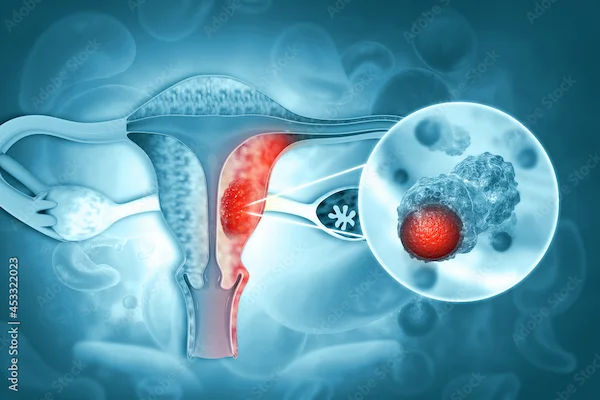Your Pre-Pregnancy Guide: A 3-Month Plan for a Healthy Conception
Prepare for a healthy conception with this comprehensive pre-pregnancy guide. Learn about preconception checkups, nutrition, lifestyle changes, partner health, and fertility tips.


Introduction
Thinking about starting a family is an exciting time. While much focus is placed on the nine months of pregnancy, the period before conception—often called the preconception period—is equally critical. Taking proactive steps with your health can significantly influence fertility, the health of your pregnancy, and the long-term well-being of your baby. This guide walks you through a practical, three-month plan to optimise your body and life for this incredible journey. It covers essential medical checkups, nutritional adjustments, lifestyle changes, and mental preparation, ensuring you feel confident and empowered as you embark on the path to parenthood.
The First Step: Scheduling a Preconception Checkup
Before trying to conceive, book a preconception care appointment with your gynaecologist or healthcare provider. This is more than a routine visit; it is a strategic planning session for your future pregnancy, laying a strong foundation for your baby-to-be.
What to Expect During Your Appointment
Your doctor will conduct a general health assessment, which typically includes a physical examination, a Pap smear if due, and a review of vaccination records. Ensuring immunity to diseases like rubella and chickenpox is essential, as they can be dangerous during pregnancy. Discuss any medications or supplements you are taking, as some may need adjustment or replacement with safer alternatives.
Discussing Your Medical and Family History
Be prepared to discuss your personal and family medical history, including chronic conditions like diabetes, thyroid issues, or high blood pressure. Your doctor may also inquire about genetic conditions in your or your partner's family, such as cystic fibrosis or sickle cell anaemia, and recommend genetic carrier screening to assess risks.
Consult Top Gynaecologists
Nutritional Foundations for Conception and Baby
What you eat in the months leading up to pregnancy directly affects egg quality and creates a nutrient-rich environment for your baby. A balanced pre-pregnancy diet plan is a powerful tool.
1. The Power of Folic Acid: Why It's Non-Negotiable
Folic acid is crucial for preventing major birth defects of the brain and spine. Since these defects develop early in pregnancy, experts recommend that all women of reproductive age take 400 to 800 micrograms (mcg) daily, ideally starting at least one month before conception through a prenatal vitamin.
2. Key Nutrients to Boost Before Pregnancy
Other vital nutrients include:
- Iron: Supports blood supply for pregnancy demands
- Calcium & Vitamin D: Essential for your baby's bones and teeth
- Omega-3 Fatty Acids (DHA): Supports brain development
- Choline: Important for brain health
3. Foods to Limit or Avoid
Avoid high-mercury fish (e.g., swordfish, king mackerel), unpasteurised dairy, undercooked meat and eggs, and unpasteurised juices to reduce exposure to harmful bacteria like listeria.
Optimising Your Lifestyle for Fertility
Daily habits significantly impact reproductive health. Positive changes now can improve fertility and create a healthier environment for conception.
1. Achieving a Healthy Weight
Being underweight or overweight can disrupt ovulation and make conception more challenging. Aim for a healthy BMI through balanced eating and moderate exercise. A nutritionist via Apollo24|7 can provide personalised guidance.
2. Incorporating Fertility-Boosting Exercise
Regular, moderate exercise helps manage stress, maintain a healthy weight, and improve circulation. Aim for 30 minutes most days with activities like brisk walking, swimming, or yoga. Avoid excessive or intense exercise, which may interfere with ovulation.
3. Eliminating Toxins: Alcohol, Smoking, and Caffeine
Smoking and alcohol are teratogens, potentially causing birth defects. Quitting smoking and avoiding alcohol are critical. Moderate caffeine intake (under 200 mg daily) is generally safe, but high intake may affect fertility, so it is best to reduce consumption.
The Often-Overlooked Pillars of Pre-Pregnancy Health
Beyond diet and exercise, other factors are crucial for a healthy conception journey.
Prioritising Your Mental and Emotional Well-being
Stress can affect the menstrual cycle and ovulation. Mindfulness, meditation, and gentle yoga are useful tools. Reflecting on emotional readiness and maintaining open communication with your partner about hopes and expectations is important.
The Partner's Role: It Takes Two to Tango
Male fertility influences about a third of infertility cases. Encourage your partner to follow a healthy diet, maintain a healthy weight, avoid smoking and excess alcohol, and consider a male prenatal vitamin with zinc and selenium to support sperm production.
The Importance of Oral Health
Gum disease has been linked to preterm birth and low birth weight. Schedule a dental checkup before conception and maintain excellent oral hygiene throughout pregnancy.
The Practical Side: Getting Your Life in Order
Preparation for welcoming a new life tends to go beyond health.
Tracking Your Cycle and Understanding Ovulation
Knowing your fertile window increases conception chances. Ovulation typically occurs about 14 days before your next period. Track it using ovulation predictor kits (OPKs), basal body temperature charts, or cervical mucus monitoring. Discuss irregular cycles with your doctor.
Financial and Insurance Planning
Begin reviewing your health insurance coverage for prenatal care and delivery. Start a savings plan for baby-related expenses and parental leave.
When to Seek Help Sooner Rather Than Later
Consult a fertility specialist if you are under 35 and have been trying for a year, or over 35 after six months without success. Seek help earlier for irregular periods, known fertility issues, or history of miscarriage. Apollo24|7 offers online gynaecology consultations for initial evaluations.
Conclusion
Embarking on the journey to parenthood is a significant decision. A proactive and holistic approach to preconception health enhances fertility, supports a healthier pregnancy, and ensures the best start for your child. This three-month preparation period is an investment in your physical and emotional well-being. Celebrate small changes, seek professional support when needed, and remember that every step you take now contributes to a healthier future for your family.
Consult Top Gynaecologists
Consult Top Gynaecologists

Dr. Dhwaraga Jeyaraman
Obstetrician and Gynaecologist
16 Years • MBBS, MS OG, DGO
Chennai
Apollo Speciality Hospitals OMR, Chennai
(50+ Patients)

Dr. S Asha Devi
Obstetrician and Gynaecologist
13 Years • MS.OG .,MRCOG (UK)
Chennai
Apollo Speciality Hospitals OMR, Chennai
(100+ Patients)

Dr. Sowmya Raghavan
Obstetrician and Gynaecologist
24 Years • MBBS, DGO, MD, DNB
Chennai
Apollo Speciality Hospitals OMR, Chennai
(125+ Patients)

Dr. Priyanka Surisetty
Obstetrician and Gynaecologist
8 Years • MBBS, DGO
Visakhapatnam
Apollo 24|7 Clinic - Andhra Pradesh, Visakhapatnam

Dr. Srinka Mukherjee
Obstetrician and Gynaecologist
7 Years • MBBS, MS Obstetrics & Gynaecology
Kolkata
VDC Clinic, Kolkata
Consult Top Gynaecologists

Dr. Dhwaraga Jeyaraman
Obstetrician and Gynaecologist
16 Years • MBBS, MS OG, DGO
Chennai
Apollo Speciality Hospitals OMR, Chennai
(50+ Patients)

Dr. S Asha Devi
Obstetrician and Gynaecologist
13 Years • MS.OG .,MRCOG (UK)
Chennai
Apollo Speciality Hospitals OMR, Chennai
(100+ Patients)

Dr. Sowmya Raghavan
Obstetrician and Gynaecologist
24 Years • MBBS, DGO, MD, DNB
Chennai
Apollo Speciality Hospitals OMR, Chennai
(125+ Patients)

Dr. Priyanka Surisetty
Obstetrician and Gynaecologist
8 Years • MBBS, DGO
Visakhapatnam
Apollo 24|7 Clinic - Andhra Pradesh, Visakhapatnam

Dr. Srinka Mukherjee
Obstetrician and Gynaecologist
7 Years • MBBS, MS Obstetrics & Gynaecology
Kolkata
VDC Clinic, Kolkata
More articles from pregnancy
Frequently Asked Questions
How long before trying to conceive should I start preparing?
Ideally, start implementing preconception health changes at least three months before trying, as egg and sperm health are directly influenced by lifestyle choices during this period.
What is the most important vitamin to take before pregnancy?
Folic acid is essential. Taking 400-800 micrograms daily significantly reduces the risk of neural tube defects and is the cornerstone of pre-pregnancy supplementation.
Can my partner's health really affect our chances of conceiving?
Yes. Male fertility accounts for about one-third of infertility cases. Sperm health depends on lifestyle factors such as diet, weight, smoking, and alcohol. A healthy partner improves conception chances.
I have a chronic condition like PCOS or thyroid issues. What should I do?
A preconception checkup is vital. Work with your doctor to manage your condition before trying to conceive, which may involve medication adjustments and a tailored management plan.
When should I stop my birth control?
This depends on the method. Barrier methods allow immediate attempts at conception. Hormonal methods may take a few cycles to regulate, while fertility generally returns quickly after removal of IUDs or implants. Discuss the best timeline with your doctor.




